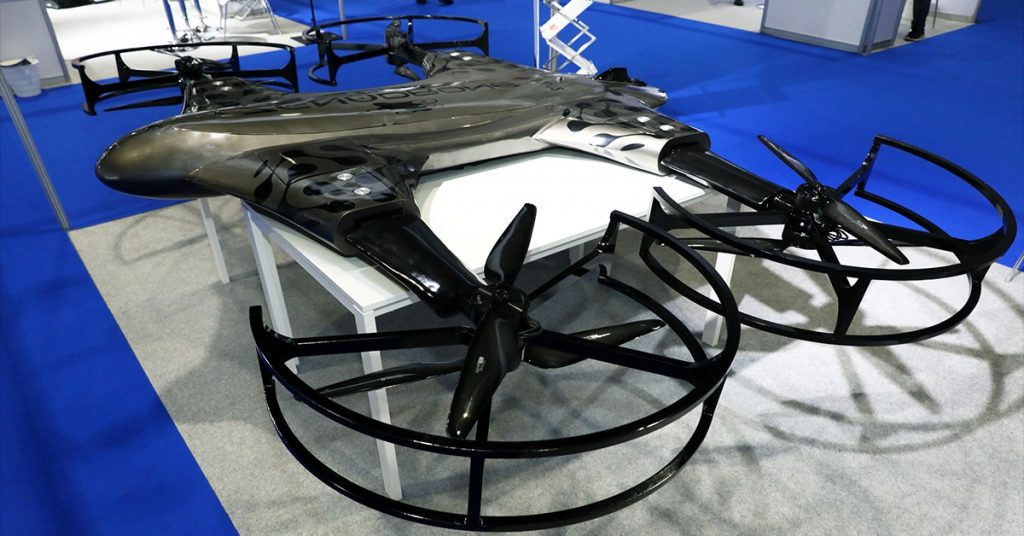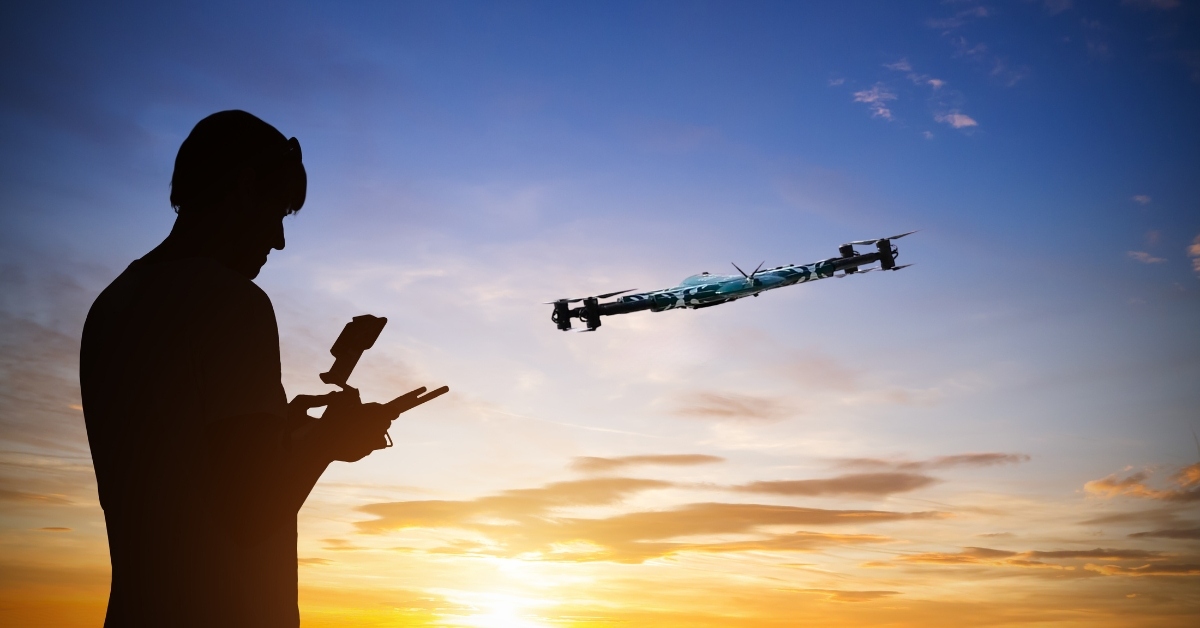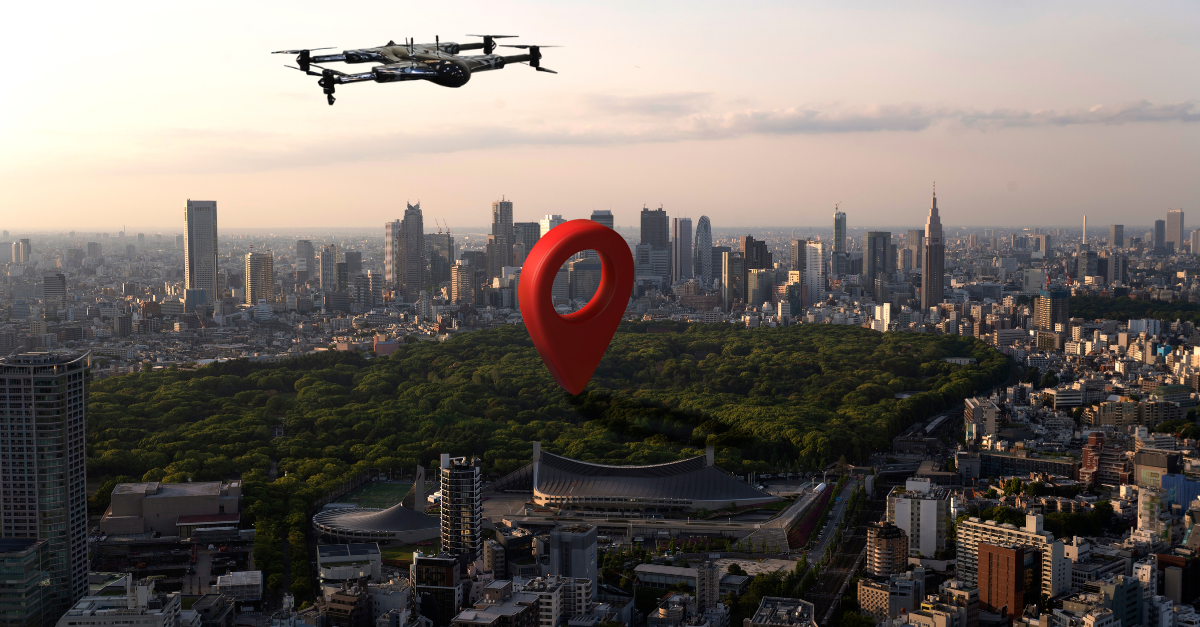AI In Drone Technology Transforming Industries
Drones are quickly rising as an innovative technology in various industries, including agriculture, construction, and logistic services. UAVs can now rapidly and accurately carry out tasks like object recognition, navigation, and data analysis owing to AI systems. Artificial intelligence innovation increased acceptance across numerous industries by providing new drone application possibilities.
There is no denying the global impact AI has had on culture. There are almost any businesses left that AI has yet to transform in some way. AI algorithms for autonomous drone flight are changing how industries move and provide services.
Modern drones produce enormous volumes of data, and it’s only a matter of time before AI now assists massive amounts of information. But what exactly does AI have to offer drones? The word autonomy is crucial here. There are several degrees of autonomy, ranging from “no autonomy” to “full autonomy” in every situation.
AI In Drone Technology
Artificial Intelligence (AI) refers to machines’ ability to execute tasks that generally require human intelligence, such as:
- Thinking
- Learning
- Perception
- Intelligence
- Decision-making
AI algorithms for autonomous drone flight can process massive volumes of data and perform complex computations. AI technology allows drones to complete jobs more efficiently and correctly.
Autonomous flight is one of the essential responsibilities of AI in drone technology. Drones can fly automatically using AI algorithms, eliminating the need for human involvement. Drones with autonomous flying can cover wider regions and execute duties more effectively.
A strong example of autonomous drones is in agriculture UAVs, where they can monitor crops, pests, and nutrient deficiencies. Autonomous UAVs allow farmers to take remedial actions in real-time, resulting in increased yields and lower expenses.
How Artificial Intelligence Functions In Drone Technology
Self-learning machines are all over popular media and pop culture. In movies and comic books, the portrayal of AI technology closely mimics the human thought process. However, real-life AI technology still has a lot of improvements to attain such feats.
Deep learning for drone intelligence has several features acting as its foundation. Drones frequently come pre-configured with GPS, cameras, navigational systems, and programmable controllers for automated flying.
However, for drones, their payloads frequently take precedence over their ability to fly. These payloads can include high-resolution cameras, thermal imaging sensors, and LiDar sensors, which are the core of any drone operation. These payloads are necessary for drones to be anything more than flying machines. The fitted sensors and cameras are all vital for gathering essential information.
Six Ways How AI Integration Improves Drone Performance And Security
Drones are getting more intelligent, efficient, and safer as AI technology advances. Innovation opens up new opportunities and revolutionizes how businesses and industries function.
Here are six ways how AI integration improves drone services:
#1 Improved Object Monitoring And Recognition
AI-enhanced drone surveillance and machine-learning techniques can substantially improve object detection and tracking capabilities. Additionally, AI-powered drones can modify their tracking tactics in response to an object’s movements and behavior, resulting in successful operations.
Drones can now precisely identify and track various items with AI systems. AI capacity has multiple uses, including surveillance, search, and rescue operations. With AI vision systems, UAVs can monitor people, animals, or objects’ movements and transmit information to human operators.
#2 Drone Operations With Autonomy
Drones already function autonomously, even in complex areas, due to AI developments. Autonomous drones can negotiate obstacles, make judgments based on real-time data, and carry out missions without human control. AI-controlled UAVs decrease the chance of human error and also offer new opportunities in industries. Industries such as agriculture, emergency response, and construction benefit greatly from autonomous AI drones.
#3 AI-Assisted Flight Planning And Drone Safety
Flight planning is critical to the effectiveness of drone missions. AI algorithms enable drones to avoid obstacles, maintain safe distances from other aircraft or restricted areas, and execute emergency maneuvers.
Powerful AI technology allows drones to scan their surroundings, recognize impediments, and calculate the most efficient flight plan autonomously. Drone swarm technology with AI systems decreases the possibility of mishaps, making operations safer for operators and the public.
#4 Analytics And Real-Time Data Processing
AI enables drones to process and analyze data in real time, providing users and industries with valuable insights. Real-time data analysis provides for more informed decision-making and simplified workflows.
For instance, programmed drones gather aerial images and sensor data for agricultural purposes. The AI system can analyze data to monitor crop health, find anomalies, and optimize resource allocation.
#5 Maintenance Planning
Increasing drone lifespan and reducing downtime require constant maintenance. AI can analyze drone performance data, flight logs, and sensor readings to find maintenance concerns before they become serious. AI may warn operators of potential issues by spotting abnormalities and patterns. The system allows operators to make adjustments and maintenance to guarantee the drone is in top condition.
#6 Laws, Regulations, And Future Trends
Using AI algorithms for autonomous drone flight raised concerns about ethics and regulations. Governments must address data privacy, surveillance, and weaponization concerns to ensure responsible drone use. Collaboration between industry stakeholders and legislators is necessary to create rules and regulations that balance innovation and moral considerations.
Drone swarm technology with AI, in which numerous drones collaborate to complete tasks are part of future trends. AI-powered traffic control systems and additional breakthroughs in autonomy allow drones to operate in harsher weather conditions. The future of AI-powered drones has vast potential in various industries with strong, established laws.
The Future Of AI And Drones
Both AI and drones are unquestionably here to stay. Many industries are betting on using these new technologies, including agriculture, construction, logistics, and emergency services. AI has demonstrated significant potential benefits for drone systems, particularly autonomous systems. Efficient and safe data gathering helps boost the achievements of large industries.
AI and machine learning integration in drone services opens up new possibilities, increases productivity, and boosts safety. Industries and governments should anticipate seeing even more innovative applications and benefits as technology advances. Self-learning systems make UAVs an essential element of many sectors. However, addressing ethical concerns and implementing appropriate rules is vital to enable AI’s responsible development and drone use.
















